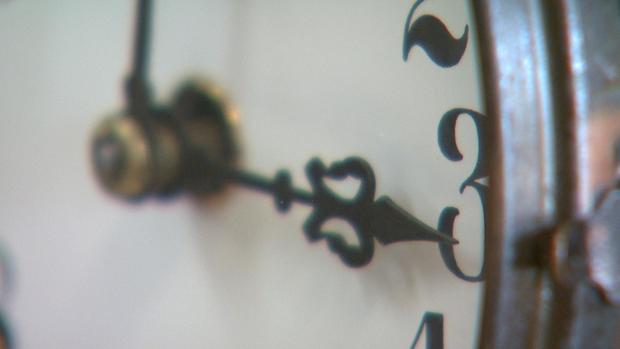Beware Of The Monday After A Time Change
(CBS4) - Today is, without a doubt, my least favorite day of the year. The simple change of a clock makes me feel sluggish, grouchy, and crying for a nap. Whether it's physical or psychological or both, it is a day of misery for mind and body.
But Sunday is not necessarily the worst one from a health standpoint. It's actually Monday that delivers a wallop of stress on your body.
Heart attack rates jump by more than 25 percent on that day as many of us head off to work. Rates of stroke rise as well. The rates slowly level out over the course of the week and then gradually return to normal.
Here's another: Monday is not a good day to be sharing roads and highways. That's because the rate of automobile accidents bumps up close to 10 percent for that first week after the time change.
Then comes is a jump in the number of throbbing heads. Migraine and other headaches tend to be more common for about seven days after the hands on the clock move ahead.
Arthritis racked joints and other chronically sore areas of the body tend to be even more painful.
Immunity sinks, so get exposed to the bugs of the week, and those bugs may have an easier time gaining a foothold. Just what you want to hear with COVID 19 lurking in seemingly every corner.
Now for a little good news. As the days lengthen, there are some gradual yet definite changes that take place in body chemistry from more sunlight. Blood pressure naturally falls a few points. So does your cholesterol level. It is easier to lose weight. There is overall less depression as the weeks go on. And as we head towards summer, we do tend to require less sleep.
So why do all of these things happen from a simple tweak of time? It all has to do with circadian rhythms, or our internal body clocks. Our bodies are used to producing, like clockwork, certain hormones and chemicals that keep us alert and healthy. Many of them are released between 6 to 8 a.m., depending on the person. But mess with the release of those hormones and chemicals, even a little, and everything can be thrown out of whack.
So what can you do?
Make sure that you get exercise, but be sure that that exercise is done at least three hours before you want to hit the sack.
Try to hit the sack on a consistent basis time wise.
Limit your alcohol. It really does interfere with sleep quality.
Finally, do your best to get outside and get some early morning sunshine. That's because early morning sunshine causes the brain to release hormones that help your body adjust to time changes. And sunlight does literally go from the eyes back through visual nerves to hormone centers in the brain.
Bottom line, feeling like you're in a fog as we spring forward is not all in your head.
Don't stress that heart… and be extra careful when you get behind the wheel next week.
Don't be bummed if your work productivity falls off a little---it's not your fault… and you can tell your boss I say so.
And don't fret, October with its gift of an extra hour is just around the corner




